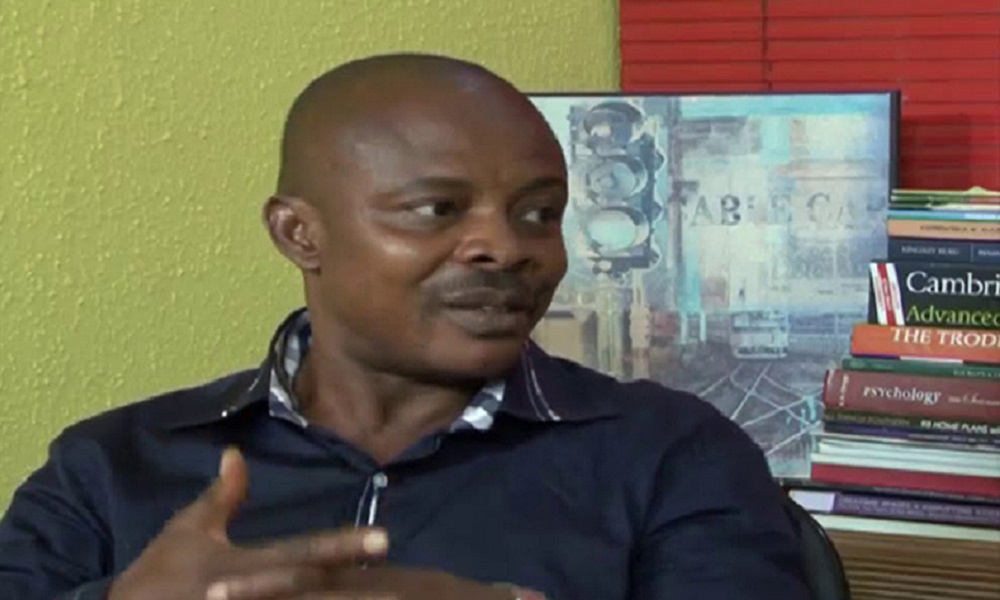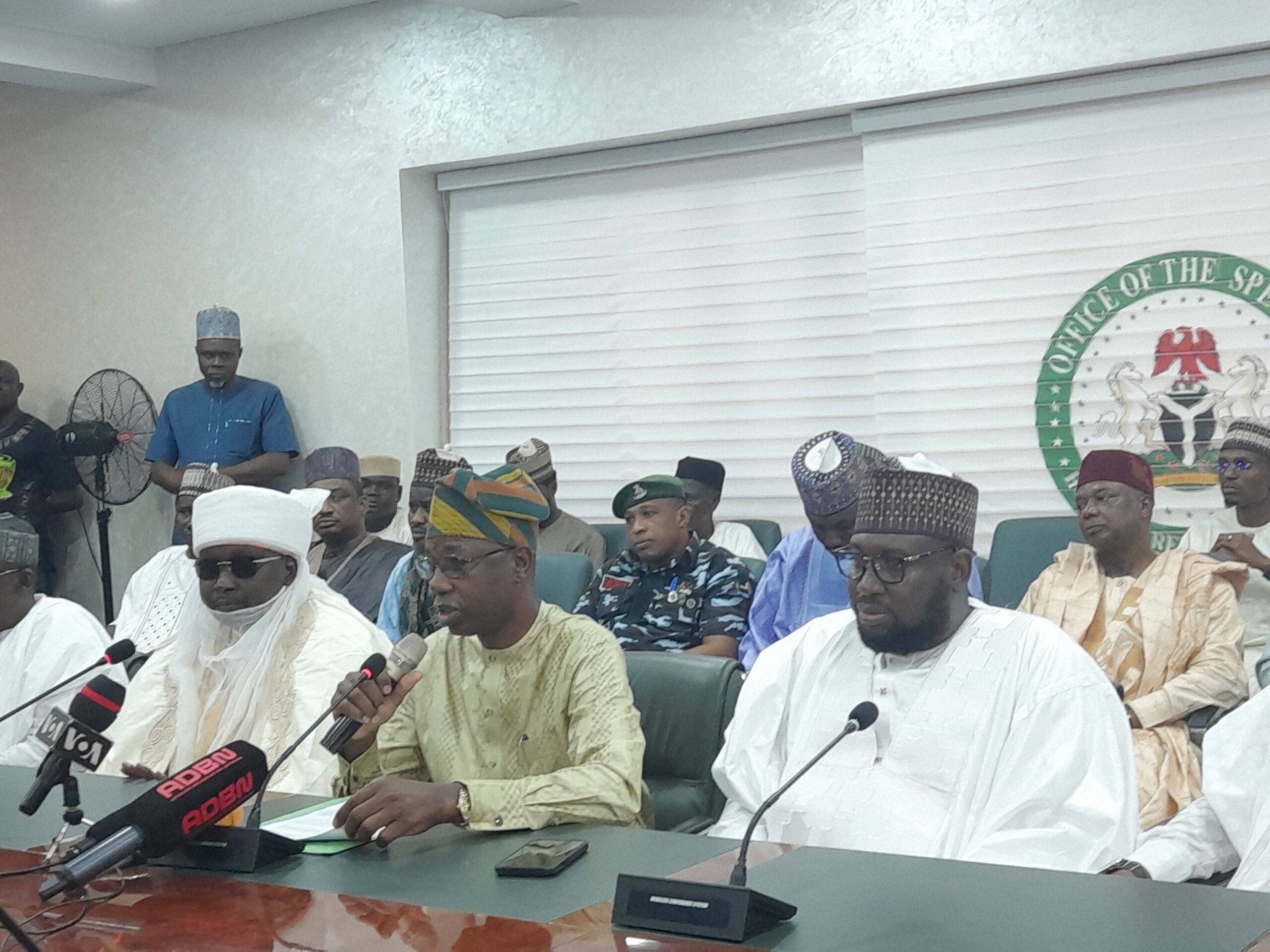News
Hardship: Nationwide Protest Must Hold, DSS Can Keep Its Unsolicited Advice – NLC President, Ajaero

The President of the Nigerian Labour Congress (NLC), Joe Ajaero, has explained why the labour union is determined to embark on the planned nationwide hunger protest across the country on February 27 and 28.
Ajaero, who gave the explanation on Friday evening while speaking on X space hosted by SaharaReporters, also clarified that the Trade Union Congress (TUC) had never been part of the planned protest from the beginning.
Asked of the specific challenges facing Nigerians that necessitated the declaration of the two-day nationwide protest and the position of the Trade Union Congress (TUC), Ajaero listed the high cost of food items, cement, transport, amongst others, which according to him were orchestrated by removal of fuel subsidy.
He said, “Clearly speaking, TUC has never been part of the action from conception. The only warning signal was the TUC coming out to say they are not part of it, even when we didn’t say they are part of it.
“For them to have gone further to deduce some letters disassociating themselves and leaking it to the media. Such statements were unprovoked. Their letter coming the same day the DSS sent a letter to us, warning us to shelve the protest, gives course to odd.
“The NLC at its National Executive Council last Friday, resolved to have a two-day protest on the cost of living on the high sea faced by Nigerians, and by implication, workers, to make their (NLC) position known, not just to the government but to every Nigerian.”
Ajaero said that the NLC in its response told the DSS “To keep their unsolicited advice; because history will not forgive NLC if we should keep quiet at this moment in Nigeria’s political history.”
On mobilisation for the planned protest, the NLC President said that all industrial unions in the country and 36 state councils and Abuja had resolved to organise the protest, adding that the union had started forwarding all the mobilisation materials to all the states, and had held several meetings with the union’s civil society allies.
Ajaero said that “The whole crisis of this hardship and hunger started with the removal of fuel subsidy,” stressing that “The moment that was touched, transportation and everything associated with it went up, that even if a wanted to go to a bush market to buy plantain, before she would transport it to the town, a lot of money has gone into it, and it will go out of the reach of an ordinary man.”
He said that this was further aggravated by the free float of the Naira “Where Naira today is getting to almost N2,000 per Dollar.”
According to him, “The implication of that is that every other neighbouring country’s currencies are higher than Nigeria in value and that has led to a very large extent, the issue of smuggling.
“For a businesswoman, no matter how primitive and local, who knows that if she sells a paint of garri for N3,000, if she takes it through the border between Nigeria and Cotonou or Nigeria and Niger Republic, she will sell it maybe for N7,000, she would find her way to that area. To that extent, food will no longer be cheap and available to the common man.”
The NLC President further noted that those who have their children abroad, some of the children are really suffering at the moment.
He said that this is “Because, assuming there is any worker that is earning N1 million in Nigeria, but I doubt, if you convert it, you will hardly get maybe $500. Now, you can’t even take care of your kids.”
He added that “In that circumstances, school fees seem to have jumped up. Cost of cement has jumped up. We may say that it is someone who has money that is building a house, the people who manage to build can’t rent it because of the costs of cement and other building materials.
“There is nothing that the Nigerian government has a competitive advantage that will make people import such products from Nigeria. The only one which is crude oil, the government has equally not been refining it here. A bag of rice now is about N70,000 and above.
“An average worker who holds a wage economy, some of them earn N30,000, and that N30,000 most states are not paying it. And that N30,000 is not enough for you to transport yourself to office to and fro for about 20 days. Those are the challenges we have.”
News
Finally, IGP approves hunger protests across Nigeria

The Nigerian police has finally approved the planned nationwide protests and outlined conditions for participants.
The Inspector General of Police, Kayode Egbetokun, revealed this on Friday while addressing journalists in Abuja.
He urged all groups planning to participate in the proposed nationwide protest to submit their details to the Commissioners of Police in their respective states.
The police boss said this was to ensure the protest was peaceful.
Egbetokun said, “We acknowledge the constitutional right of Nigerian citizens to peaceful assembly and protest.
“However, in the interest of public safety and order, we urge all groups planning to protest to provide necessary details to the Commissioner of Police in the state where the protest is intended to take place.
“To facilitate a successful and incident-free protest, they should please provide the following information: state the proposed protest routes and assembly points; expected duration of the protest; and names and contact details of protest leaders and organisers.”
The police boss said the information expected from the organisers also include measures to prevent hijacking by criminal elements, as well as key identifiers for possible isolation of potential troublemakers.
By providing the information, he said, the police will be able to deploy adequate personnel and resources to ensure public safety.
He said the police needed to know the specific routes and areas for the protest to avoid conflicts with other events or activities.
Mr Egbetokun said the police will “establish clear communication channels with protest leaders to address any concerns or issues that may arise; minimise the risk of violence, property damage, or other criminal activity.
“We encourage all protesters to cooperate with the police, obey the law, and adhere to global best practices for peaceful assembly to guarantee a safe and successful exercise of their rights.
News
Reps North-West Caucus Beg Youths, Citizens In The Region Not To Join Planned Protest

News
Reps Applaud FCT Minister, Wike On AICL Improved Revenue, Infrastructure

-

 News22 hours ago
News22 hours agoIwuanyanwu was a Heavyweight in all ramifications-Abaribe
-

 News21 hours ago
News21 hours agoTinubu, Southern Govs Mourn Iwuanyanwu
-

 News21 hours ago
News21 hours agoSokoto Governor, Aliyu’s Wife Holds Lavish Birthday As Guests Spray Dollar Notes On Her Amid Hunger, Hardship
-

 News21 hours ago
News21 hours agoProtest: President Tinubu In Closed-door Meeting With Traditional Rulers (Video)
-

 News23 hours ago
News23 hours agoTinubu’s Presidency Is Failing Nigerians – Afenifere
-

 News18 hours ago
News18 hours agoNationwide protest: ‘Airport Is Filled Up, Govs, Senators, Reps, Ministers Traveling Abroad’ — Fayose
-

 News23 hours ago
News23 hours agoIGP Orders DPOs, Their Men To Storm Vulcanizer Shops Ahead Of Planned Nationwide Protest
-

 News22 hours ago
News22 hours agoI Participated In Peaceful Protests For Democracy – Tinubu







